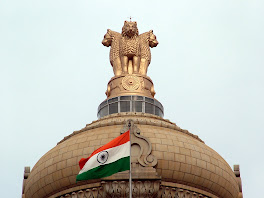This is the first and most important stage of your journey and should be accomplished most carefully as coming things hinge on it and a wrong decision may prove to be disastrous. Careful analysis of syllabus, previous years' papers, your caliber, requirement of subject (Visionary, Numerical, Theoretical), comfort level with the subject and past trends should be done. Advice from seniors and fellow candidates should also be sought. To avoid dithering in choice at later stage, initial deep thinking and consultations are a must. Having decided the subject, it is advisable to stick to your choice even if the perception of others about it is not favourable.
Major criteria, which should guide you in choosing optionals, are:
- Interest in the subject. This is quite important for sustaining the momentum in studies and completing the huge syllabus.
- Availability of guidance – in the form of seniors who cleared with the optional, coaching, material, etc.
- Performance of the optional in the last few years.
- Time gap between the two optionals. Some people try to choose the optionals combination so that there is some time gap between them.
Please note that there is no subject that can be said to be scoring. UPSC is maintaining utmost balance between the subjects. It has brought all the optional subjects onto the same platform as far as scoring is concerned.
Some of the optionals which a majority take are: Anthropology, Geography, History, Political Science and International Relations, Psychology, Public Administration, Sociology and Literature.
The main advantages with these optionals are:
- Availability of guidance, which reduces the efforts to a large extent
- The knowledge also helps in GS, Essay and interview.
- They are also relevant for an administrative career.
If a person is from professional education background (i.e. Engineering /Medicine), which optionals should he choose? This is a basic question for many. There is a tendency to opt for the graduating subject. Lets understand the problems associated with these subjects.
· Previously, science and Engineering Optionals used to do very well. In top 20, there used to be 15-16 from IIT and engineering background. But after 2000, UPSC has modified the syllabus. It became a very huge syllabus and even the exam questions are made tough. That’s the reason why, very few are writing the exam from IITs now. Many engineers are taking arts optionals instead of sciences. Just observe the background of the toppers and their optionals.
· There will be no guidance available for engineering/medical/science subjects. So, lots of time will have to be spent in understanding the requirements of the exam. Then, searching for the material. It becomes a trial and error process. All the energies will be spent on this, while you get exhausted when really studying. At the same time, you will also have to complete the huge syllabus of another optional and GS.
· Because of the above problem, it will take more time and more attempts. While, your friends in other fields go far ahead. So, both peer and social pressure starts. The exam is anyhow psychologically demanding, if other pressures add to it, then it becomes unbearable. Finally, your goal of cracking the exam becomes impossible.
· You will have to do every thing on your own. Initially it might be fine. But the exam is of long duration. It becomes difficult to sustain the momentum on your own.
A person might be University topper, but we have to understand the difference between an academic exam and a competitive exam. So it is very important to be careful, while choosing optionals, even though you might feel you are really good in a particular subject.
Still, if you are confident about your subject, then do take that optional. There are some people who cleared with optionals that others don’t take generally. But take into consideration the following points
- Whether you have a senior who has cleared with this optional and who can guide you well
- Whether you have close association with professors who have good understanding about this exam.
- Are you clear about the requirements of the exam? Study the previous papers thoroughly and assess yourself
- Be clear about the books to follow. Don’t do trial and error process. Do a focused exam oriented preparation.
- Do not neglect other optional and GS. Give equal importance.
- Form a group of aspirants with same optional. If you prepare in isolation, then there will be no flow of information.
Do not be in a hurry to decide about the optional. Be very cautious and consult the right people about the information. Analyse carefully all the pros and cons, and then take a decision purely based on your assessment.



No comments:
Post a Comment